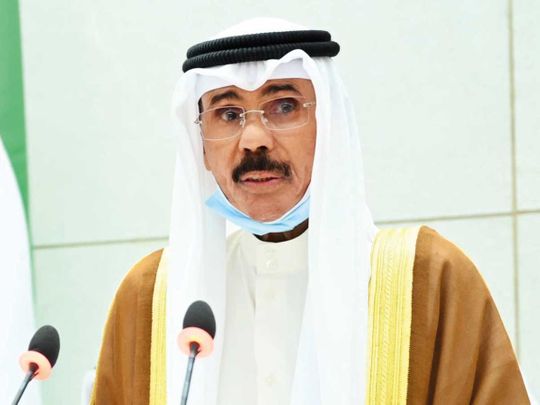
Kuwait City: During his speech at the 41st Gulf Cooperative Council (GCC) summit, Kuwait’s Emir, Sheikh Nawaf Al Ahmed Al Sabah, praised the AlUla agreement pointing out that it is a “historic event” and stated that it should be called the “solidarity agreement”.
Although the details of the agreement are yet to be released, the summit was viewed as a success and an indication that ties between the six countries are committed to achieving cooperation in all fields.
Acknowledging the role that the late Emir of Kuwait, Sheikh Sabah Al Ahmed Al Sabah and the late leader of Oman, Qaboos bin Said, played in mediating the rift, the summit was named “the Summit of Sultan Qaboos and Sheikh Sabah”.
Kuwait’s role in resolving rift
Kuwait’s role at the summit is seen as crucial as it spearheaded the negotiations between the two sides since the start of the crisis in 2017.
Several regional and foreign leaders applauded Kuwait in its role to resolve the Gulf dispute.
In a phone call on Tuesday, Saudi Arabia’s King Salman bin Abdulaziz Al Saud congratulated Sheikh Nawaf on him signing the AlUla agreement and commented on his efforts to unify the GCC countries and boost Arab solidarity, KUNA reported.
The United States Secretary of State, Mike Pompeo, thanked Kuwait for its mediation efforts and he said in a statement, “restoring full diplomatic relations is imperative for all parties in the region to unite against common threat.”
In addition, the European Union (EU) welcomed the outcome of the summit and the EU High Representative, Josep Borel said: “The EU stands ready to support regional integration within the GCC to strengthen its long-standing partnership.”
Legacy of the late Emir
Signing of the AlUla agreement is being hailed as a positive move to honour the legacy of the late Emir. During the summit, the leaders of the GCC states emphasised their gratitude for Sheikh Sabah as he tried tirelessly to end the crisis.
Sheikh Sabah established Kuwait as the key mediator between the two sides. The Emir landed in Jeddah a day after the crisis broke out to meet with King Salman.
The Emir’s efforts to act as mediator were applauded by the United States and the Gulf Cooperation Council (GCC). Kuwait, which has retained ties with Qatar and has often acted as a mediator in regional disputes, has maintained that it wants to resolve the dispute “within the unified Gulf house”.
A few months into the Gulf crisis in September 2017, the Emir spoke at a joint press conference with Trump and expressed his optimism that a resolution could be found.








